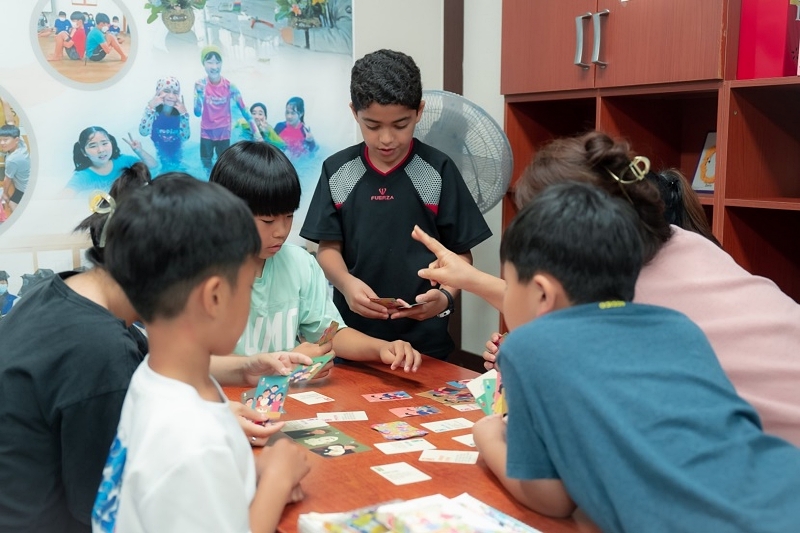
The Ministry of Justice will extend the guaranteed stay of the children of people living in the country illegally to March 31, 2028. (CJ Welfare Foundation)
By Park Hye Ri
The children of foreign nationals living in the country illegally will get a three-year extension of stay, and foreign youth who grew up in Korea can stay even if they do not attend university.
The Ministry of Justice on March 20 said it will extend measures to grant residence qualifications to guarantee the right of such children residing in Korea for a long time through March 31, 2028. Such measures were set to expire at the end of this month.
To guarantee the rights of such children and their parents to ensure the former's access to education in the country, the ministry had granted residency for such youth attending school even if their parents were staying illegally. A combined 2,713 people -- 1,508 adults and 1,205 minors -- qualified for this exemption over the last four years.
With the effectuation of the measure in April 2021, children who were born and had lived in the country for over 15 years received legal residence status. From February 2022, the rule was amended so that the mandatory period was six to seven years and included those born abroad.
In addition, foreign youth who graduated from high school in Korea will receive assistance finding a job or settling in the country without needing to attend university.
The previous regulations required such youth to have a bachelor's degree or at least five years of work experience to obtain a work permit like the E-7 (special activity) visa, making it difficult for them to get employed in the country without a college education.
From April 1, the ministry will allow youth to get either the D-10 (job seeker or training) or E-7-Y (employment) visa if they meet the following conditions, being ages 18-24 as of the date of application, residence in the country for over seven years before turning 18, and graduating from elementary, middle and high school in Korea.
For those who did not finish elementary, middle and high school in the nation, they can still qualify by completing the five-stage course of the Korea Immigration and Integration Program. Those living in a depopulated region or one in danger of that status for over four years with the D-10 or E-7-Y visa are also eligible for the F-2-R (region-specific outstanding worker) visa.
Acting Minister of Justice Kim Seok-woo said, "We will keep pursuing a social integration policy that the public can empathize with so that foreign youth with a background of living in Korea can grow up with the identity of being part of our society."
hrhr@korea.kr